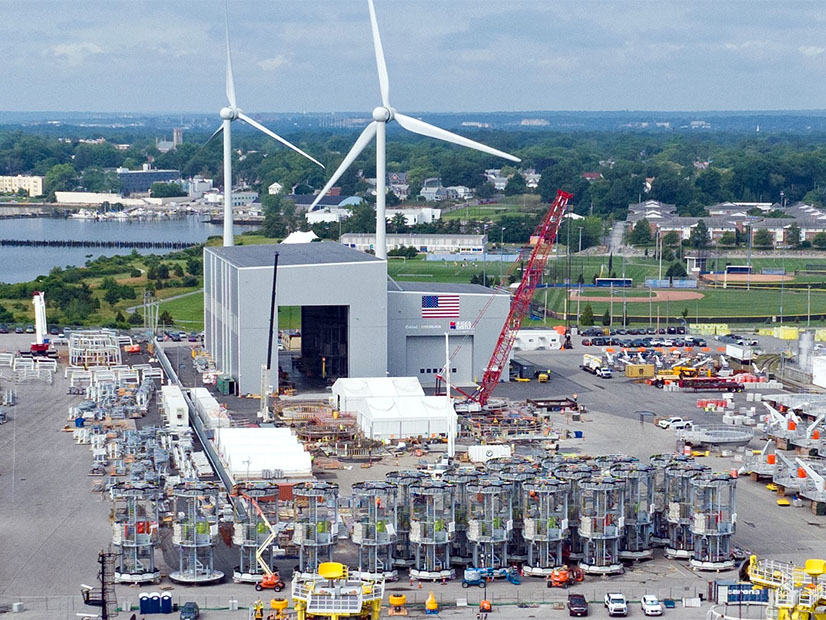
A coalition of offshore wind opponents sued to overturn federal approval of the South Fork Wind and Revolution Wind projects.
A coalition of offshore wind opponents is suing federal agencies and officials, seeking to overturn their approval of the South Fork Wind and Revolution Wind projects.
The “putative” approval violated nine federal acts, the plaintiffs argue, and in so doing, undercut the statutory and regulatory requirements put in place to protect the nation’s natural resources, industries and people.
It is the latest in a series of legal challenges to the first wave of what is envisioned to be dozens of wind farms off the Northeast coast. So far, none of the complaints have been successful in thwarting offshore wind’s progress in U.S. waters.
In fact, the Ørsted-Eversource partnership is nearing completion of South Fork and preparing to begin construction of Revolution.
Case 1:24-cv-00141 was filed Jan. 16 in U.S. District Court in the District of Columbia.
Topping the list of plaintiffs is Green Oceans, a Rhode Island nonprofit opposed to “industrialization of our coastal waters.” Named as defendants are the U.S. Department of the Interior, Bureau of Ocean Energy Management, National Marine Fisheries Service, Army Corps of Engineers and the leaders of those entities.
“In authorizing these projects,” the plaintiffs write, “defendants failed to comply with numerous statutes and their implementing regulations: [the] Administrative Procedure Act, National Environmental Policy Act, Endangered Species Act, Marine Mammal Protection Act, Migratory Bird Treaty Act, Coastal Zone Management Act, National Historic Preservation Act, Outer Continental Shelf Lands Act and Clean Water Act.”
There currently are 42 MW of installed offshore wind capacity in the United States, but Mid-Atlantic and Northeast states have combined goals of more than 50 GW. The Biden administration wants to get at least 30 GW operational by 2030.
The legal paperwork lays out a familiar complaint — in rushing to create an offshore wind industry, developers and governmental entities risk harming ocean ecosystems. (See Report Flags Gap in Scientific Knowledge of OSW Effects.)
“Green Oceans aims to prevent irreversible damage to the marine ecosystem and Rhode Island communities,” the legal paperwork states.
Another plaintiff is Responsible Offshore Development Alliance, a D.C. nonprofit representing the fishing industry.
In 2022, RODA filed a federal lawsuit against Interior, BOEM and others, alleging they had violated numerous environmental protection statutes in approving Vineyard Wind 1, another wind project off the southern New England coast.
The judge hearing Case 1:22-cv-11172 dismissed RODA’s complaint against Vineyard in October, and RODA in December filed an appeal.
Like South Fork, Vineyard 1 is nearing completion.
RODA told NetZero Insider in mid-2023 that start or even completion of construction does not render these types of challenges moot — if the complainants win their case, a judge still could order redress ranging right up to halting construction or ceasing operation.
South Fork Wind is a smaller, 12-turbine project with a nameplate capacity of 132 MW. It fed its first electricity to the New York grid Dec. 6 and reported Jan. 18 that the sixth turbine had begun generating power.
Revolution Wind has a nameplate capacity of 704 MW — 300 MW designated for Connecticut and 404 MW for Rhode Island. Offshore components are being fabricated, construction of onshore electrical infrastructure is underway and offshore construction is planned to begin later this year.
(See related NetZero Insider coverage: Lawsuit Against Vineyard Wind over Threat to Whales Tossed; Judge Dismisses Groundwater Lawsuit Against South Fork Wind; Lawsuits Mount Over NJ OSW Projects as Opposition Digs In; Opponents to NJ OSW Project Sue BOEM to Stop Project.)



